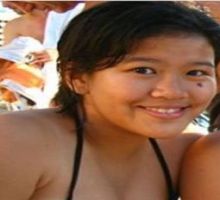Animal activist and PAP MP, Louis Ng, told Parliament yesterday (27 Feb) that he wants streaming in secondary schools to be eliminated to ensure social mixing and prevent the stigmatization faced by students in Normal streams.
Currently, streaming is used to separate students according to academic ability based on their PSLE score. That is, they would be streamed in secondary schools after finishing their primary 6 education, according to their PSLE results.
Ng said that while streaming caters to the different learning needs and pace of students, the problem is that it is based on academic results. And the reality is that students in the Normal streams tend to have a lower socio-economic status than those from the Express stream, he added.
“We all know that we hang out with our classmates much more than with our schoolmates. What streaming has possibly done is to reduce social mixing and harden social stratification,” he said. “I am sure streaming was not meant to divide our nation by social economic status, but we now see streaming does contribute to it.”
Calling for streaming in secondary schools to be scrapped, Mr Ng said, “There will be inequality in our education system. The fact is that not everybody is the same. But our students are not stupid and should not feel that they are or face that kind of stigma.”
“We need to make sure their future is not decided by one major exam. We need to make sure that like where we live, we don’t have social stratification in where we study.”
Dr Tan Cheng Bock questioned streaming 38 years ago
Ng is certainly not the first MP to speak against the streaming system of Singapore’s education.
Thirty-eight years ago on 17 Feb 1981, about a year after the government implemented the streaming system, then MP Tan Cheng Bock spoke against the ills of streaming in Parliament. In fact, he opined that streaming in education would encourage “intellectual snobbery” in the society.
“In line with the call by the President to Backbenchers like me to speak my mind, I will endeavour to do my best,” he started his speech in Parliament that day. He noted how over-anxious parents would put their children into particular schools.
“The fact that 88% of the children in the borderline Pass group (40 – 49%) in the last PSLE opted for the express stream, despite being advised that their children would fare better in the normal stream, illustrates this point very clearly,” he said.
“Why do parents do this? Is it because they think they know their children’s capabilities better? Or is it to avoid losing out in the social class struggle?”
He further explained, “Class division, undesirable though it may be, exists in muted form in our society. This is expressed in the way Singaporeans go increasingly for prestigious brands of clothing, bags, shoes, cars and even schools.”
“And when we start creating prestigious labels such as superschools, special and express streams, no Singaporean wants to be caught with the merely ‘Normal’ label,” he added. “Moreover, we seem to be too enamored over streaming when the West is having second thoughts over the system.”
He quoted then PM Lee Kuan Yew who would mix different types of HDB housing in an estate to breakdown class division and discourage “social snobbery”. Dr Tan said, “Perhaps the Prime Minister’s observation on mixed housing applies equally to our schools – a good mix of abilities will certainly go a long way to discourage intellectual snobbery which I think is far worse than social snobbery.”
“The ‘intellectually well off’ will not then be conditioned into thinking that they must have the best of everything without regard to those less well-endowed. Intelligent children, so segregated, run the danger of developing intolerance and a superiority complex to those less able,” Dr Tan cautioned.
Unfortunately, the government was determined to implement education streaming no matter what. And the result is after 38 years later, the Parliament is still talking and debating about streaming.
MP’s daughter: “Get out of my elite uncaring face!”
Dr Tan’s fear of “intellectual snobbery” created out of streaming was epitomized in 2006 during the “Wee Shu Min incident“.
 The elitism controversy occurred in Oct 2006, when Ms Wee Shu Min, who is the daughter of then MP Wee Siew Kim and a student on Raffles Junior College’s Humanities scholarship programme, found herself in controversy after writing insensitive statements against heartlanders on her blog.
The elitism controversy occurred in Oct 2006, when Ms Wee Shu Min, who is the daughter of then MP Wee Siew Kim and a student on Raffles Junior College’s Humanities scholarship programme, found herself in controversy after writing insensitive statements against heartlanders on her blog.
Dismissing the views of a heartlander, Derek Wee, who voiced concerns on job security and age discrimination on his blog, she shot back with a take-no-prisoners diatribe, calling Mr Wee a “stupid crackpot”, belonging to “the sadder class” and over-reliant on the government. Her post also called for Mr Wee to “get out of my elite uncaring face”.
Her response triggered an avalanche of criticism from Singaporeans and she was later forced to apologise and shut down her blog. Commentators used the controversy as evidence that Singapore was suffering from increasing signs, that political elitism, “smarter-than-thou” snobbery and class consciousness anxiety were creeping into its meritocracy model.
Many also pointed to a widening social stratification that would cause long-term implications for Singapore society, as well as problems in the education system that need to be addressed.
The controversy was subsequently raised and hotly debated again in Parliament with one MP pointed out that elitism was now an open secret in several aspects of Singapore society, including education, the military and the civil service, commenting that it is necessary “(to) break down the institution of snobbery within our society”.






